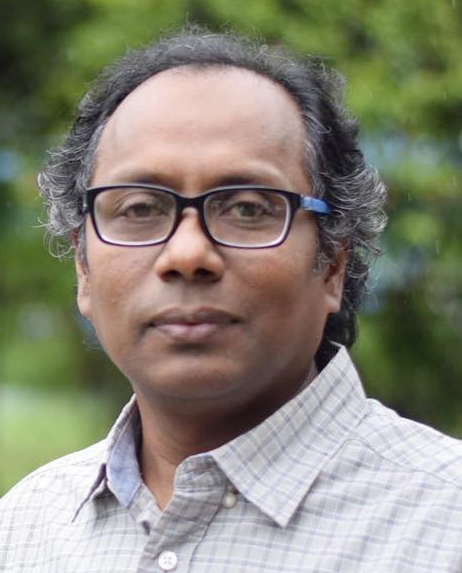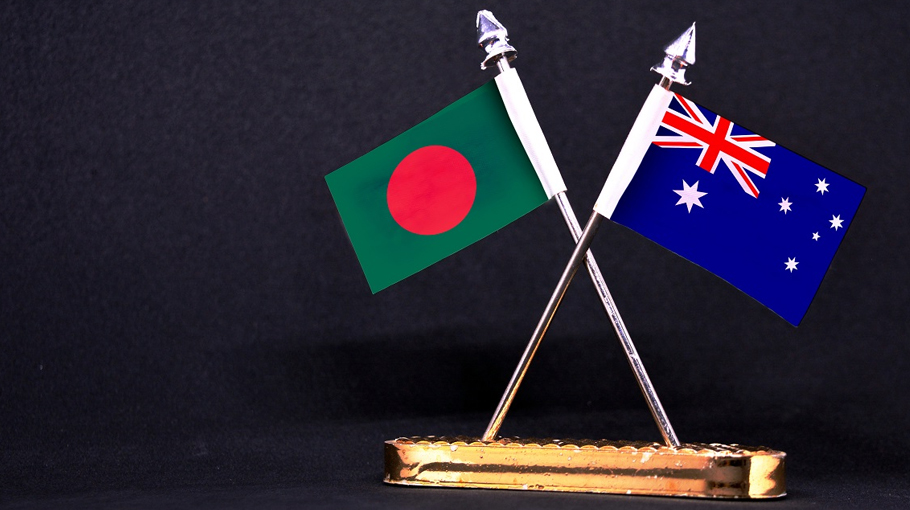Bangladesh-Australia relations evolving

That was about seventeen years ago. I was watching television in the drawing-room with some Australian friends. An Australian friend of mine saw a picture of a few brick buildings in an African city on the screen and asked me, is there such a building in Bangladesh? I was not too surprised by the friend's question. Because to most Australians at the time, Bangladesh meant a poor country with natural disasters.
Now the days have changed. Bangladesh's image has evolved significantly throughout the world. Sheikh Hasina, Bangabandhu's daughter, was elected Prime Minister of Bangladesh in 2008 and transformed the country. As a result, Bangladesh is now regarded as a development wonder. Bangladesh has made significant progress in various areas of development, including economics and health. As a result, Bangladesh is attracting a lot of attention from countries worldwide. On the one hand, the world is looking forward to unravelling the mystery of this unexpected development of Bangladesh. On the other hand, numerous nations' interest in strengthening commercial links with Bangladesh has grown. Australia has recently been added to the list of interested countries.
Despite all the possibilities for good relations to grow, the Bangladesh-Australia relationship did not appear to attain its full potential for some unexplained reason. There did not seem to be enough mutual interest between the two countries. However, Australia was the first country in the Western world to recognise Bangladesh as an independent country on January 31, 1972. William A. S. Ouderland, an Australian citizen, was awarded the title of Bir Pratik for his courageous role in Bangladesh's liberation war. Ouderland is the only foreigner to receive the title of 'Bir Pratik' for his courageous role in the war of liberation.
However, the last few years have seen significant progress in this relationship. The perceptions of policymakers, including the Australian government, about Bangladesh have changed a lot. The foreign ministers of the two countries now have regular contacts. Australian side made a request and Prime Minister Scott Morrison met Bangladesh's Prime Minister Sheikh Hasina during the United Nations Climate Conference COP-26 on 2 November 2021 in Glasgow, Scotland. The Australian Department of Foreign Affairs and Trade (DEFAT) highlighted humanitarian aid to Bangladesh in its previous annual reports. In the recent annual report for 2020-21, Bangladesh has been recognised as one of its key partner countries. The same DFAT's report mentions human rights and humanitarian assistance only in relation to Sri Lanka, Maldives, Afghanistan, Nepal and Pakistan.
In recent years, Australia's interest in investing in Bangladesh has grown. Bilateral trade is also making significant development at the moment. In September last year, Australia and Bangladesh signed the Trade and Investment Framework Arrangement (TIFA) to enhance bilateral trade and investment. Australia has promised to provide duty-free and quota-free facilities to Bangladesh even in the changing circumstances of the post-LDC era in future. Significant improvements have also been made between the two countries in the areas of defence and security. Renowned policy institutions such as the Australian National Security College, the Australian Strategic Policy Institute, and the Lowy Institute are also discussing Australia's possible defence and security ties with Bangladesh. They have recently published several articles on Bangladesh. The Australian Government has sought permission from the Government of Bangladesh to open a Defence Attaché office at the Australian Embassy in Dhaka. This also shows that the attitude of Australian policymakers towards Bangladesh has changed a lot. Discussions are also underway at the diplomatic level between the two countries in various fields, including the education sector, visa facilitation, import of skilled and unskilled workers from Bangladesh. Our embassy is also making strong efforts for direct Sydney-Dhaka communication by air. All of these indicate that ties between Bangladesh and Australia are improving.
The official interests of both nations are at the centre of the development of overall ties between them. The attempts to strengthen this bilateral relationship have gained further momentum, mainly after Bangladeshi Prime Minister Sheikh Hasina visited Australia in April 2018. Bangladesh's Foreign Minister, Dr Abdul Momen, is also working relentlessly to enhance bilateral relations. In this relationship, our embassy personnel in Australia are also carrying out their tasks effectively on behalf of Bangladesh. Kazi Imtiaz Hossain, the previous ambassador, and Sufiur Rahman, the current ambassador, played significant roles in this case. Numerous senior officials in Canberra's government offices have informed me that our present Ambassador, Sufiur Rahman, is highly active in promoting a positive image of Bangladesh and safeguarding its interests at all levels of the Australian government. We are seeing the results of his hard work. When I spoke with Sufiur Rahman a few days ago, he said, "I have done my best to preserve and expand Bangladesh's interests in Australia under the overall direction of Hon'ble Prime Minister Sheikh Hasina and the supervision of Foreign Minister Dr Momen. You have already obtained some results. I have planted a few more seeds, and insha'Allah, you will start seeing results soon."
We can see the reflection of Ambassador Sufiur Rahman's optimism here in Australia. Besides, we are also noticing a lot of changes in the routine and regular activities of the Bangladesh High Commission, not just in Australia-Bangladesh relations. The High Commission's consular services have become far more professional and satisfying than previously. Accountability and openness in their work have also increased dramatically. As part of the accountability, beginning in August 2019, the High Commission’s website has started publishing information on the prior month's consular services. According to a recent statistic, out of about 5000 machine-readable passport applications, over 99.3% applications were successfully processed. Thirty-two passport applications were not successful for not meeting the requirements of the existing laws of the Bangladesh government. In addition, we had previously seen several inconsistencies in the embassy's consular activities, which the current High Commissioner has strictly controlled. We had dreamed of having our own High Commission building in Canberra for a long time. We anticipate that construction work for this building will begin soon since we are close to realising our dream. In response to a long-standing desire from the Sydney people, a consulate was established in the city. The community has already expressed its appreciation for the Consulate's location and activities in Sydney. Consular camps are also held regularly in various Australian locations, benefiting the Bengali community.
Australia Day is celebrated every year on 26th January. It commemorates the landing of the First Fleet at Sydney Cove in 1788 and the hoisting of the Union Flag by Arthur Phillip. Although, many people, notably Indigenous Australians, see the day as "Invasion Day" rather than "Australia Day." Without entering this debate for the time being, I would like to extend my best wishes to everyone on this special day from Australia. On completing five decades of Bangladesh-Australia relations, we hope that the friendly and diplomatic relations between the two countries will continue to strengthen in the future. Additionally, Bangladesh's reputation as an active partner of Australia in the Indian Ocean region will also be enhanced.
Dr Abul Hasnat Milton is a Bangladeshi-born Australian Author, academic, and public health expert



